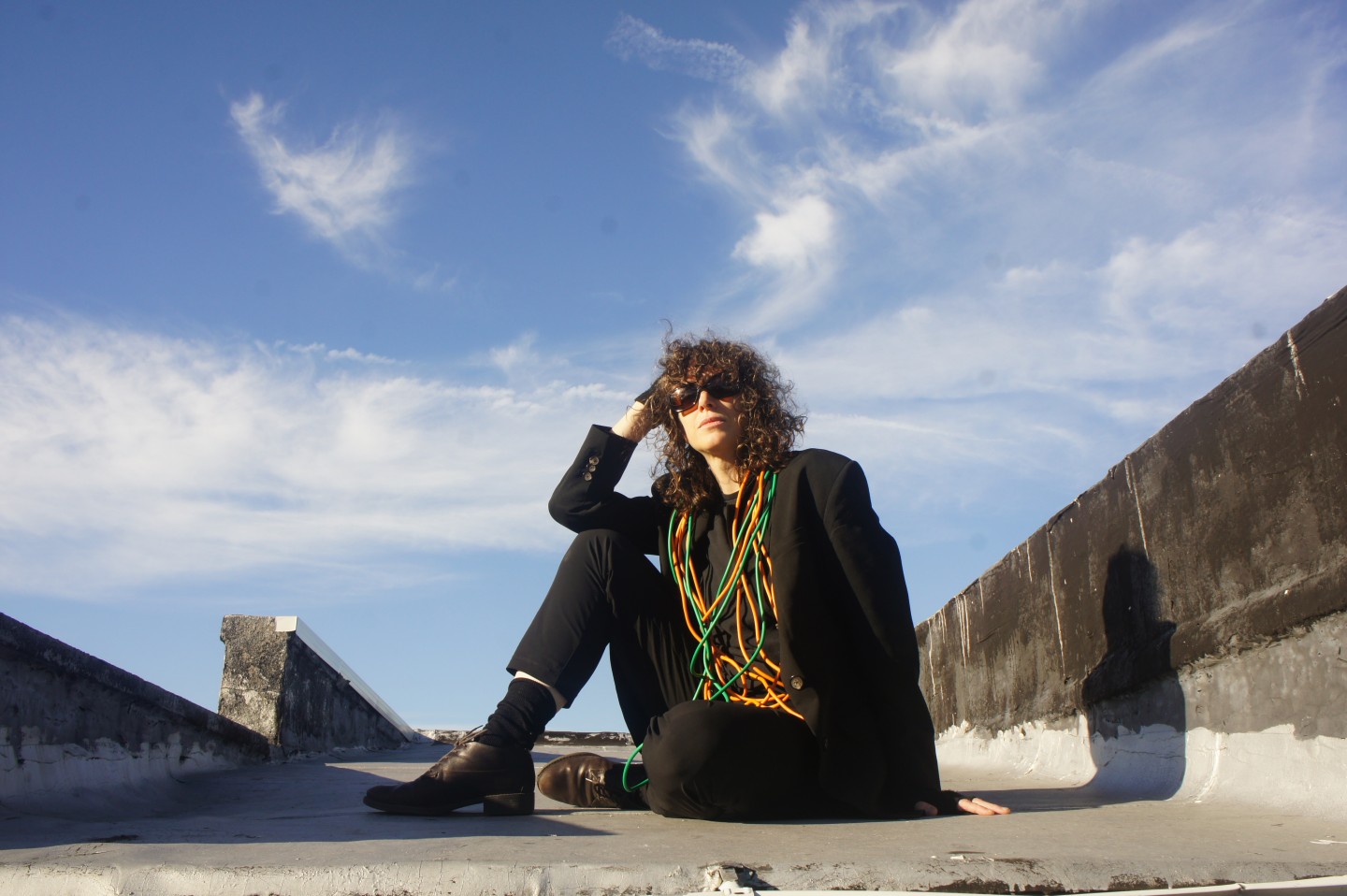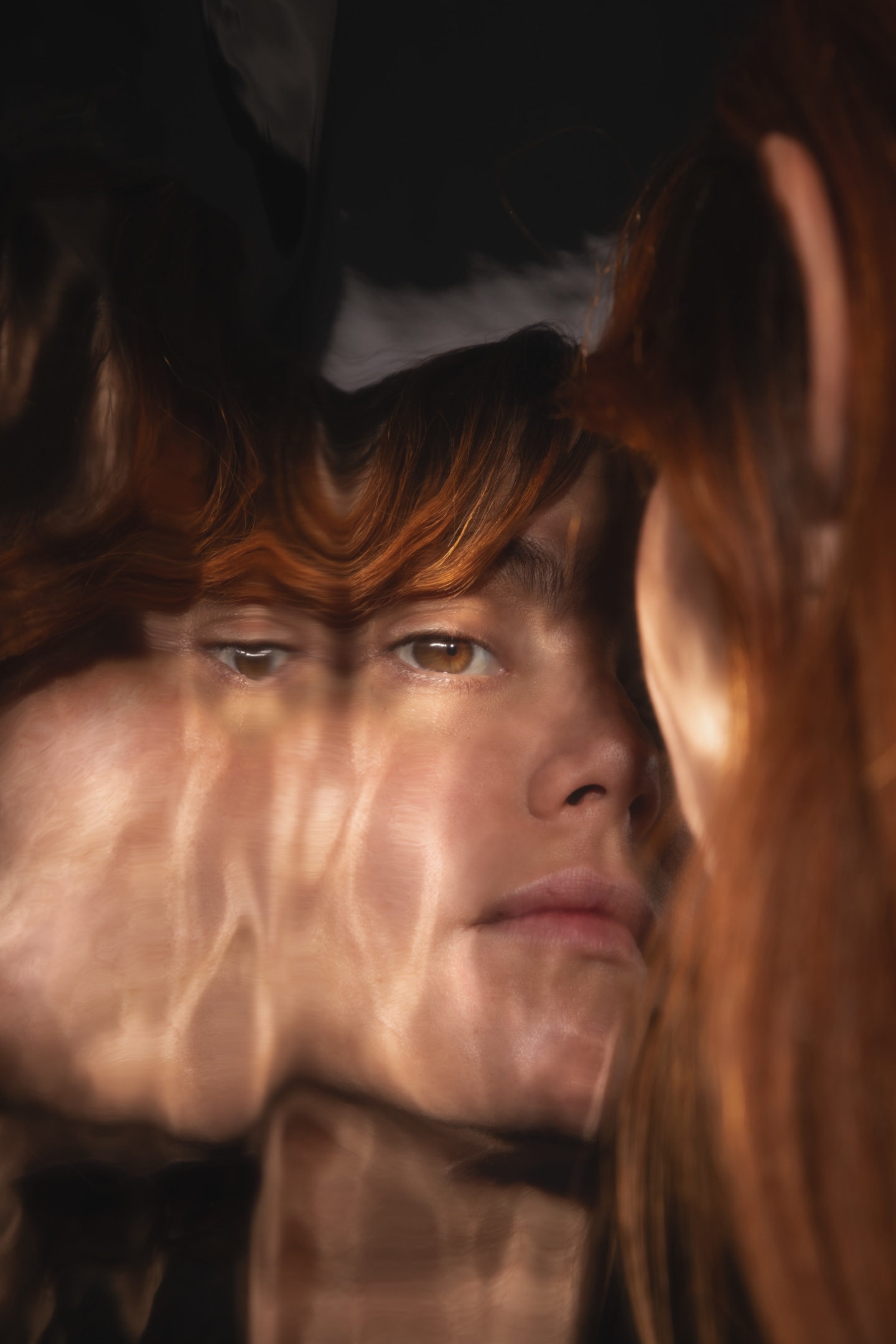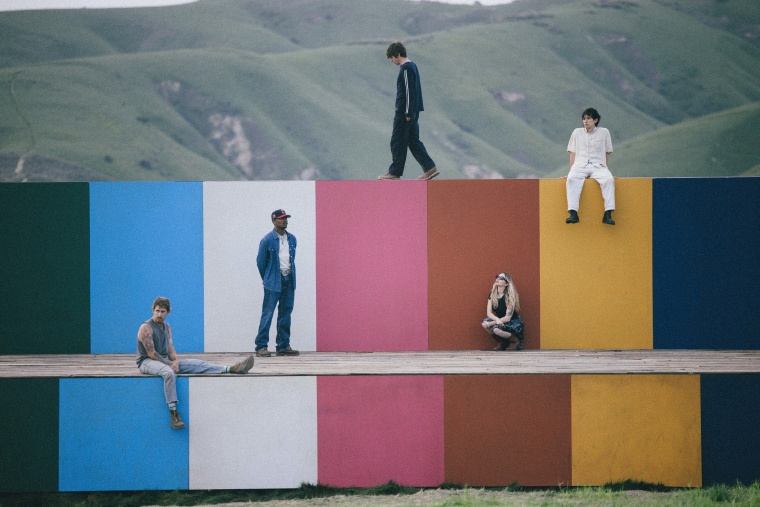Ka Baird. Photo by Samantha Riott.
Discover Blogly is The FADER’s curated roundup of our favorite new music discoveries.
Ka Baird’s art is best experienced live. On stage, they move like a mad sorcerer, treating their microphone like an unholy altar as they channel something well outside the realm of rational reality. “I consider my art to be a very spirited exercise,” they explain in a mini-documentary accompanying their first solo LP since 2019. “There’s a lot of ritualistic intent to it, and the difference between a recording and a live performance [has] become quite distinct for me.”
In fact, Bearings was first conceived in the spring of 2022 as a 20-minute performance art piece in which Baird would “[shift] guises between magician, shaman, clown, and athlete, all enduring ongoing states of groundlessness through a physically demanding performance that entailed both play and struggle,” according to the record’s bio.
The album’s subtext, “Soundtracks for the Bardos,” swam into focus soon after, when Baird’s mother was given a terminal prognosis and Baird moved temporarily from New York City to Decatur, Illinois to care for her. “For the following six months, I would work on assembling, arranging, and creating these sounds in the quiet moments while she slept,” they’d go on to write. “The live performance of Bearings, combined with the experience of caretaking for my mother and witnessing their death, fomented this record.”
In musical form, Bearings: Soundtracks for the Bardos is a series of 11 “Gates,” each representing a stage in the passage from death to whatever comes next. These states are represented in terrifying yet sublime fashion here, comprising monolithic drones, claustrophobic loops, and the unsavory sounds that skitter across their margins.
Bardos — as those who’ve read The Tibetan Book of the Dead or a certain piece of Abraham Lincoln fanfic will know — are the in-between states one enters after dying and must pass through before rebirth, according to some schools of Buddhist thought. These spaces are definitionally liminal (a word which is tossed around far too often but actually applies here), shadow realms suspended in aspic above a paper-thin threshold.
Baird’s album, of course, is inextricable from the death and grief surrounding its creation. But their concept of “bearings” remains the guiding force behind it. Seen as the gaps or transitions between our grounded, comfortable states, the “Gates” represent our most precarious moments, when all we know is cast into doubt and disorientation.
Bearings is, in most senses, a harrowing and solitary endeavor, much like Baird’s live set. Its recording, however, was the work of an ensemble of a dozen human musicians and Baird’s cat, who joined forces to create the “collective thrum” that serves as the record’s starting point and anchor. Still, the album is defined by its discomfiting elements: Baird’s extended techniques in voice, flute, and, most importantly, microphone, which is rendered a ghastly entity of its own through chains of effects and feedback processes.
“We are always in a bardo,” Baird says in the mini-doc, “because impermanence never takes a break. Change is the only constant, and trying to find ways of being grounded in the present… ultimately brings about a higher sense of gratitude for life.”




